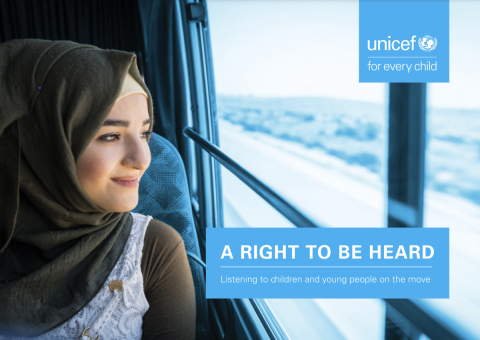Library
A Right to be Heard
For many uprooted children, the journey from home can be profoundly lonely and plagued by challenges that put their health, education and futures at risk. Nearly 40 per cent of the migrants and refugees aged 14–24 who participated in the poll said they received no help at all during their journey in search of a safe and a better future – not from family, not from friends, not from institutions. About 40 per cent said they travelled alone. Nearly half reported that they did not see a doctor when they needed one. Eighty per cent of those who left their home countries because of war, conflict or violence described missing valuable time in school.
These insights were provided as part of a poll conducted in September and October 2018 by UNICEF through U-Report, a social messaging tool for young people. The questions were sent digitally to U-Report users around the globe, and about 4,000 migrants and refugees aged 14–24 responded. The goal of the poll was to encourage children and young people to speak out about their experiences so their voices could be heard and heeded.
Far too often, millions of uprooted children and young people are invisible in data. Many do not have access to national or local services and fall through the cracks of child protection systems as they cross borders. Indeed, data are scarce, and little is known about young migrants’ health, their education, or how migration affects their futures.
